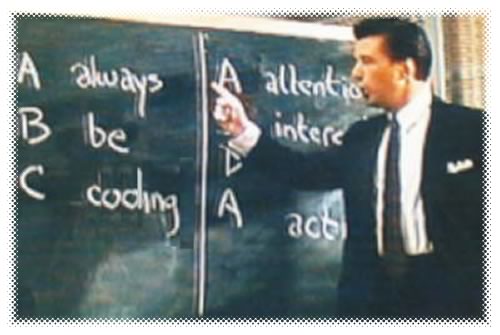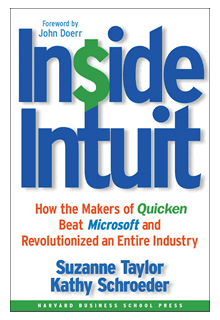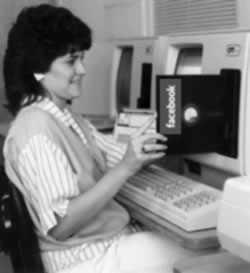
Okay, so I doctored this photo a little.
Jeff “Coding Horror” Atwood writes in his one of his latest articles, Yes, But What Have You *Done*?:
At the point when I spend all my time talking about programming, and very little of my time programming, my worst fear has been realized: I’ve become a pundit. And the last thing the world needs is more pundits. Pundits only add ephemeral commentary to the world instead of anything concrete and real. They don’t materially participate in the construction of any lasting artifacts; instead, they passively observe other people’s work and offer a neverending babbling brook of opinions, criticism, and witty turns of phrase. It’s pathetic.
Perhaps that’s why I find this blog entry from SEO Black Hat so inspiring:
Do it F***ing Now.
Don’t wait. Don’t procrastinate. The winners in this world are not the ones who find the greatest excuses to put off doing what they know will make them more money. The winners are the ones that prioritize and seize the day.
Create a list of action items to make sure your important tasks get accomplished. Every project you’re working on should be in action. If you’re not moving, you’re standing still. Your next step towards making money must not be “something I’ll take care of maybe sometime next week.” If it’s going to help make you money: Do it F***ing Now.
Some of you may think that you don’t need the “f***ing” in “do it f***ing now”. You do. You need that impact, that force, that call to action, that kick in the ass to get you moving. Otherwise, you’ll end up another loser that had a great idea a long time ago but never did anything about it. Dreamers don’t make money. Doers make money. And doers “Do it F***ing Now.”
Need some inspiration to get off your butt? I can send you to Steve Pavilina’s essay, Do It Now.
If you need something a little more visceral and sweary, here’s the “Always Be Closing” scene from Glengarry Glen Ross. Choose either, or choose both — whatever it takes to get you doing less talking and producing more output:




 Hey, budding Facebook developers! I’ve got another installment of my series of articles on Facebook development:
Hey, budding Facebook developers! I’ve got another installment of my series of articles on Facebook development:  Patrick “Fitzblog” Fitzsimmons has been reading Inside Intuit and has come up with
Patrick “Fitzblog” Fitzsimmons has been reading Inside Intuit and has come up with 